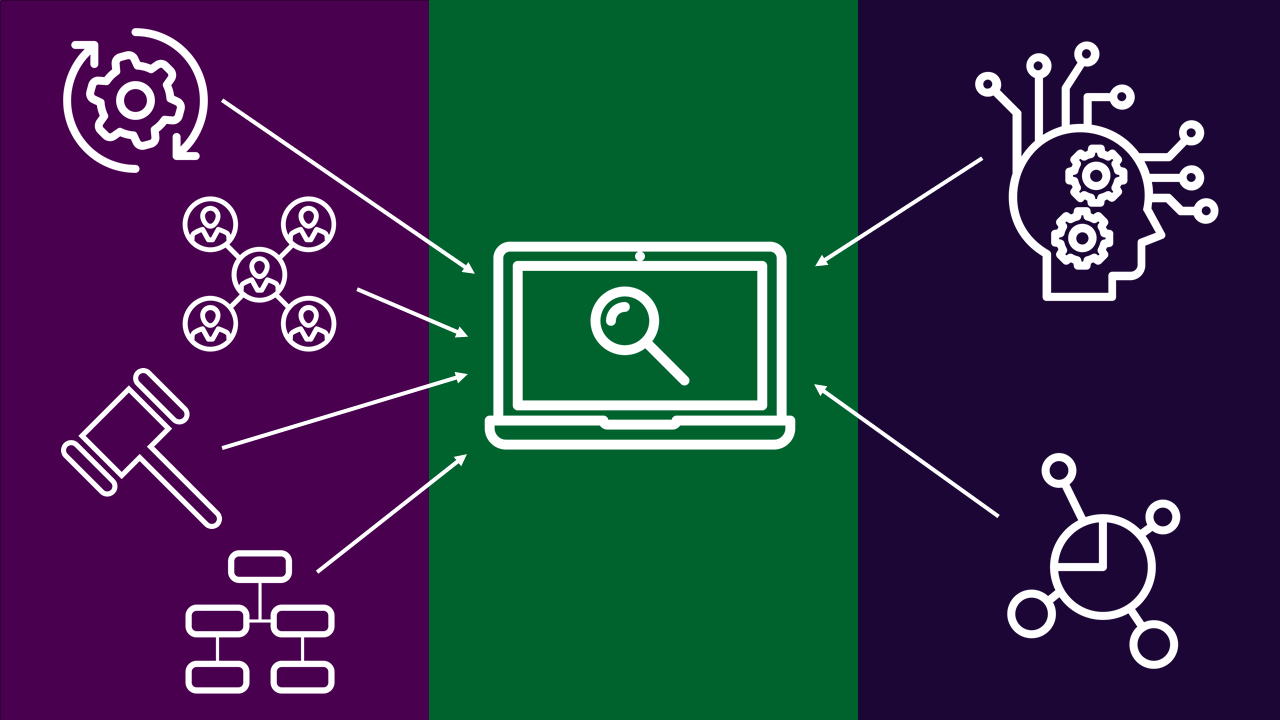Clients come to EK looking to empower their people, make operations more efficient, and create a competitive advantage against their peers through improved Knowledge Management (KM). They want to take advantage of cutting-edge technologies like knowledge graphs, artificial intelligence (AI), and machine learning to make this happen. Enterprise Search allows organizations to realize their KM objectives and take advantage of these new technologies. In many ways, search is the solution that ties together all of the other KM activities organizations undertake.

Our KM roadmaps typically begin with a series of foundational activities such as:
- Organization definition;
- Governance;
- Improved information processes; and
- Taxonomy design.
These initial activities are critical to a successful KM implementation, but they are not always visible to end users who are looking for feedback on their investment. However, once search is in place, users can begin to see the fruits of their efforts in a compelling way. The taxonomies appear as facets in search. The new processes users are asked to follow and the additional effort to enter metadata don’t seem onerous when they can quickly find what they need through search. After seeing search for the first time, one of our client’s business sponsors offered the following comment.
“So that is why we have been doing that taxonomy stuff. This search is amazing!”
Search helped this client understand what their work was leading to. It crossed silos of information, exposed the taxonomy, and let business users find what they needed quickly and in one place. This client saw search as a tangible reward for all of their organizational and design efforts. Search would not have been successful without all of the upfront work, and that work would not have felt so rewarding without search to show its impact.
AI and machine learning are hot terms. Everyone wants to take advantage of AI, even if they don’t know what it means. Search is a great way to highlight how these technologies can make an impact. Machine learning and AI help make our search tools more efficient. We use taxonomy management and auto-tagging tools to tag the content we are indexing so that we have additional metadata that can be used to provide faceting for search. These tools use natural language processing and machine learning to suggest tags for content.
Our search solutions also provide a front-end to knowledge graphs. Knowledge graphs allow executives to collect analytics against structured and unstructured information. They also help spot patterns or relationships between information that was not already known. Banks and insurance companies can use knowledge graphs to identify fraud. Research organizations can use these same tools to spot unknown patterns in outcomes that could lead to new research findings or improved processes. Services organizations can use knowledge graphs as a way to better track employee skills and activities, filling potential resource gaps before they even exist.
These knowledge graphs capture content and data in ontologies that are stored in graph databases. The graph databases use built-in machine learning to identify relationships and information patterns that are not readily apparent using older technologies. The challenge with graph databases, however, is that they’re difficult to surface for the standard user without a front-facing technology. To address this, we often expose the results through our enterprise search applications. Search provides an unstructured interface that allows people to traverse these relationships however they want. This open-ended approach gives users a great way to see the artificial intelligence derived through the knowledge graph.
As you plan out our KM Roadmap, make sure that you consider the importance of search as a way to tie together all of your other activities. If your existing search does not highlight your KM function, let us help you create a search solution that uses the latest technologies to enable your KM vision.
